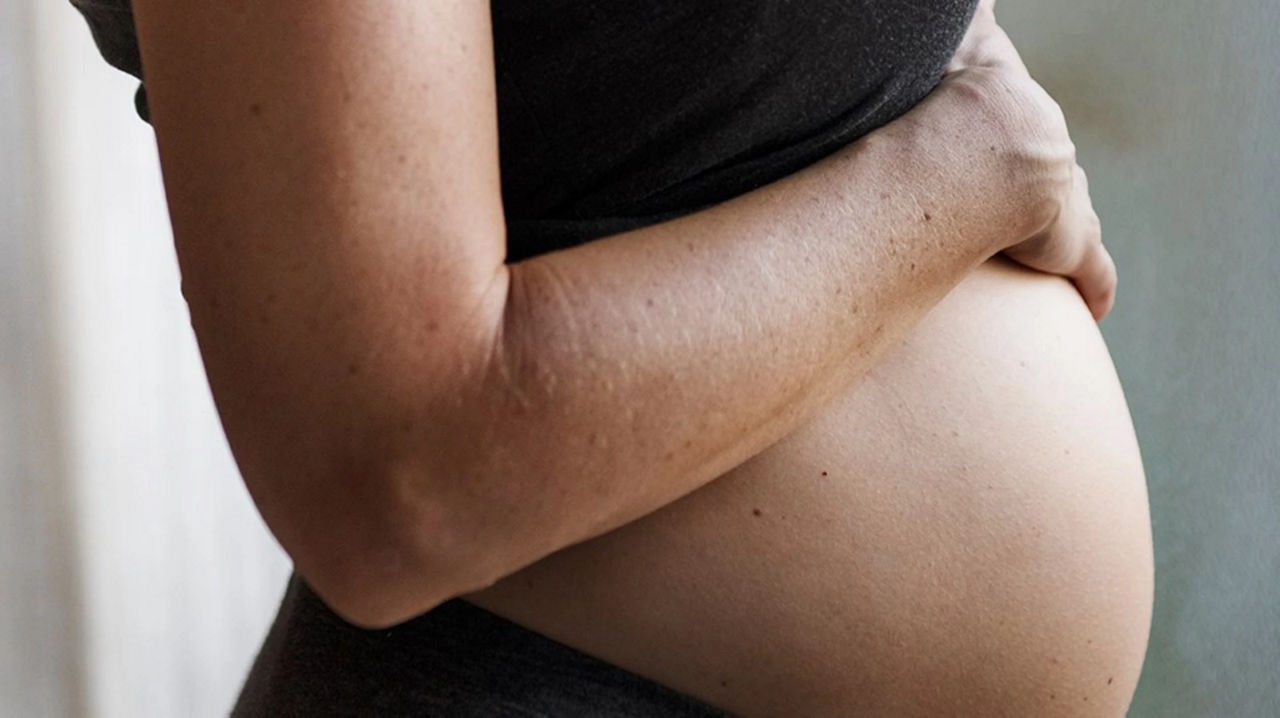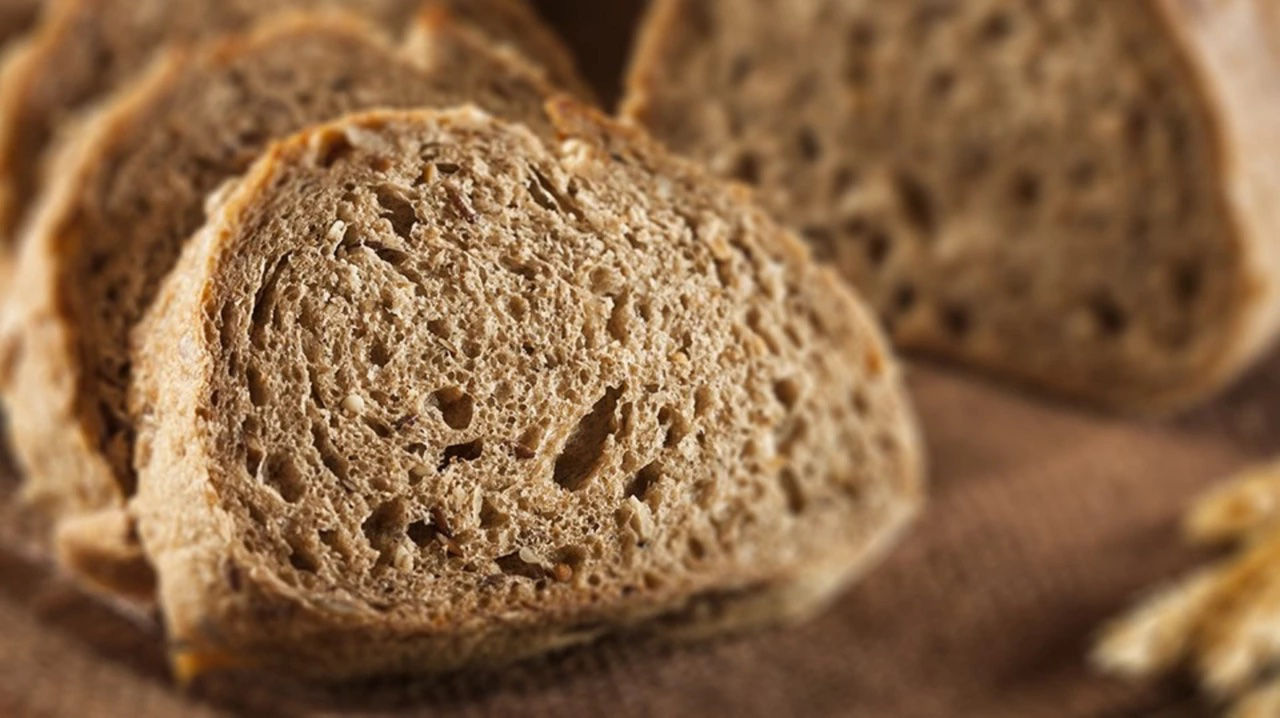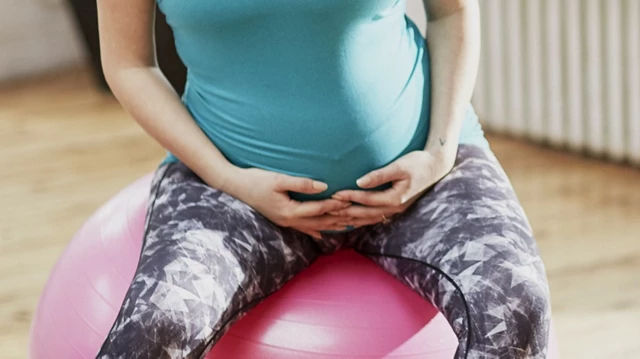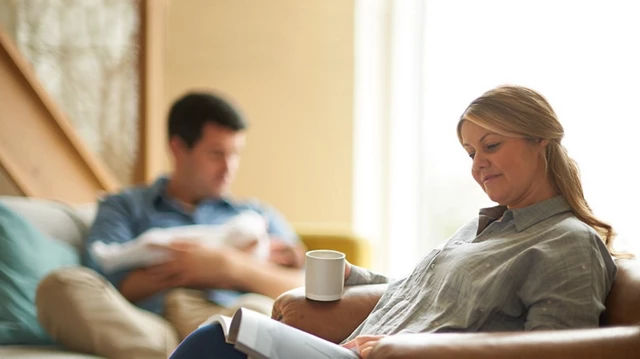As you enter into your third trimester, packing your hospital bag is just one of the many milestones you’ll meet as you prepare for your parenting journey.
Hospital bag checklist
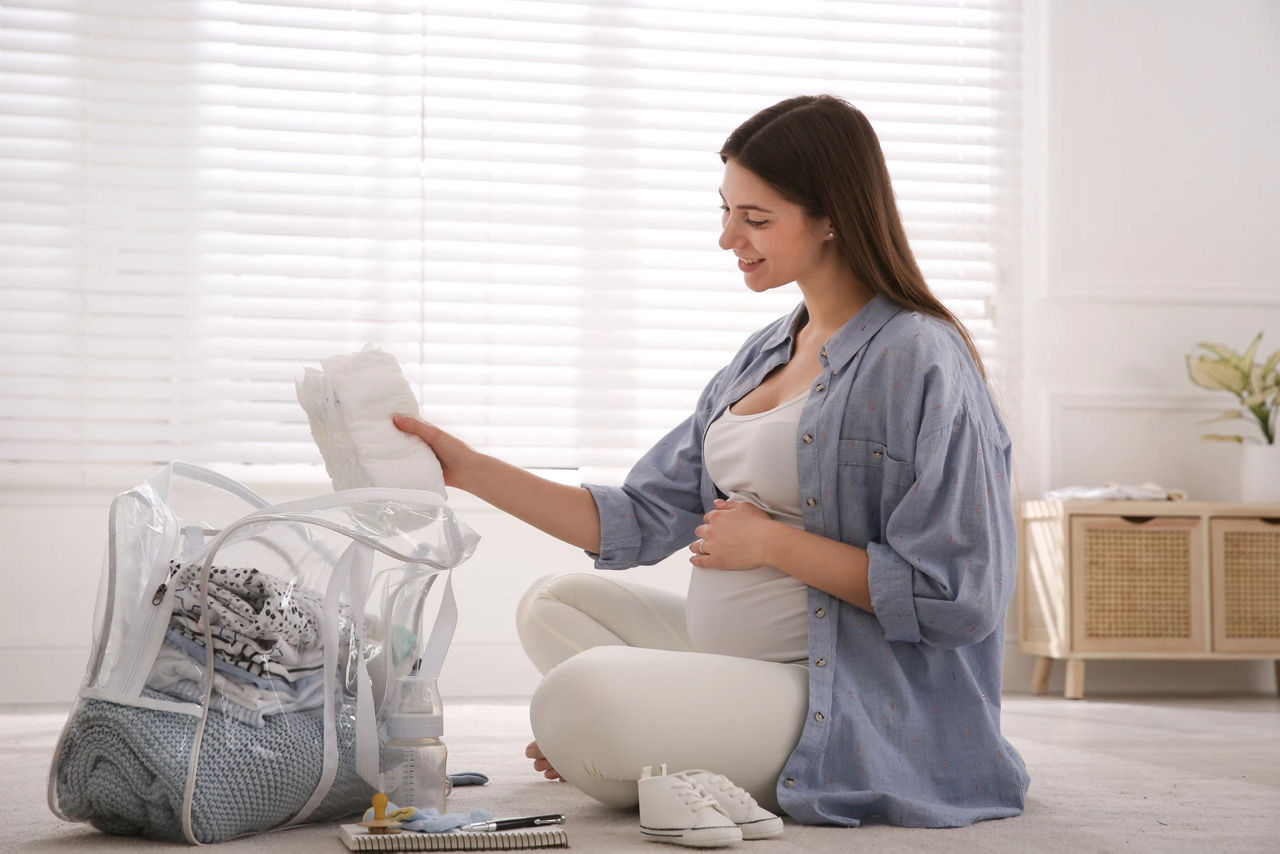
From your own free, downloadable checklist and hospital bag essentials, to what your birth partner might need and when to start packing, we’re here to help you feel as prepared as you can be for labour and beyond.
Download your free hospital bag checklist
To help you prepare for the birth of your baby, we’ve created a free, downloadable hospital bag checklist.
It’s full of the things that you might need during your labour, as well as what you’ll need for your baby once you’ve given birth. You can download it here now.
What to pack in my baby’s hospital bag?
As well as the hospital bag essentials you’ll need for labour, there are also a number of things you’ll want to add to your baby’s hospital bag too.
Here are some of the things to think about packing in your baby’s hospital bag:
Baby vests and sleep suits - during your stay in hospital, your baby is likely to go through a number of outfits. To be sure you’re covered, take a few basic vests and sleep suits in your baby’s hospital bag to keep them fresh, warm and comfortable.
Nappies and nappy bags - You’ll need to take plenty of nappies to ensure that you’ve got enough for your baby’s first few hours and days.
Going home outfit - Choosing your baby’s going home outfit is a special thing to think about when putting together your hospital bag checklist. Remember to consider the time of year when thinking about your baby's going home outfit to ensure that your baby won’t be too hot or too cold.
Other things to include in your baby’s hospital bag are:
- A baby blanket.
- Scratch mitts, socks and hats.
- Muslin squares.
- Cotton wool.
Whilst it won’t fit in your hospital bag, if you’re taking your baby home from hospital in a car, you’ll need a rear-facing car seat that’s suitable for a newborn. Make sure it fits into your car beforehand and practice getting it in and out. That way you’ll feel as confident as you can when it’s time to come home.
How many nappies should I pack in my hospital bag?
There’s no way to pinpoint an exact number when it comes to how many nappies you should pack in your hospital bag. But to avoid running short, it’s best to bring plenty.
You’ll definitely need at least one pack of newborn nappies, and consider leaving another pack with your partner or in the car as a back up. That way, if you have a longer stay in hospital than you anticipated, you’ll be covered.
Hospital bag for mum
It’s easy to focus all of your attention and energy on what your baby will need when you’re writing your hospital bag checklist. But it’s also important to think about what you’ll need, both during your labour and after the birth.
Whilst your hospital bag essentials might not be particularly glamorous, rest assured they’re the things that you’ll find the most useful and that will keep you the most comfortable during your birth experience.
Let’s take a look at some of those hospital bag essentials.
Hospital bag essentials for mum
Make sure your hospital bag checklist includes your birth plan. It’s important that your midwife and doctor are aware of what your wishes are for your labour and birth so that they can follow those as far as possible. It’s also a good idea to make sure your birth partner also has a copy of your birth plan.
You’ll want to be as relaxed and comfortable as possible during your labour and after you’ve given birth. Think about the type of birth you’re planning and what clothing will be the most practical. Are you intending to have a water birth for example? If so, a bikini or tank top could be the best option.
You might have been considering your options when it comes to pain relief during labour. If you’re planning to use a TENS machine, make sure you’ve got spare batteries and check that it’s in good working order.
Some other hospital bag essentials include:
- Loose-fitting nightdresses, light dressing gown and going-home clothes
- Socks or slippers and perhaps some flip flops.
- Nursing bras and breast pads.
- Maternity knickers.
- Sanitary or maternity pads.
- Phone charger
- Books, music, magazines, tablet or eReader
- Extra pillow
- Earplugs and eye mask
- Lavender room spray
- A notebook or diary
Hospital bag toiletries
There’s no way of knowing how long your labour will be or how long you’ll be in hospital once you’ve given birth, so packing some essential toiletries is a must.
These include:
- Your toothbrush and toothpaste.
- A flannel.
- Shampoo and a hairbrush.
- Moisturiser and lip balm.
- Hair ties or a headband to keep your hair out of your face.
Hospital bag for dad and birthing partner
Once you’ve put together all of your hospital bag essentials, and those for your baby’s hospital bag, it’s time to think about what your partner will need if you intend to have them with you at the birth.
Here are some of our tips for your birth partners hospital bag checklist:
Money for car park - Make sure you know the hospital car park rates and whether they accept card payments or whether you’ll need change. You can also get a parking app for some towns and cities so check if there’s one for parking near the hospital.
Mobile phone and charger - You may want to keep loved ones up to date as your labour progresses and once your baby is born. You’ll also likely want to take lots of photos.
Toiletries and a change of clothes - You can never be sure how long you’re going to be in hospital after your baby’s birth, so your birth partner should have a change of clothes and some toiletries.
Entertainment - In addition to your phone, maybe pack some headphones and a book or two to keep you occupied while you wait for your baby’s arrival.
Snacks for hospital bag
Making sure you’ve got a variety of snacks on your hospital bag checklist is essential. Labour can be tiring, and you’ll need something to help keep your energy levels up.
Try to opt for healthy and nutritious snacks, and things that won’t sit heavily on your stomach. For example:
- Bananas and other fresh fruit.
- Nuts and dried fruit.
- Wholemeal biscuits.
- Crackers and breadsticks.
- Energy bars - but be sure to check the sugar content to ensure it’s not too high.
- Isotonic drinks.
C-Section hospital bag
If you’re giving birth via c-section, your stay in hospital is likely to be a little longer as you recover, so your hospital bag essentials should include some extras.
You’ll want to pack some additional clothes, and several pairs of high-waisted cotton knickers to protect your scar after your surgery. Think about packing clothes with buttons for easy access if you’re choosing to breastfeed.
As your movements will be restricted at first, slip on shoes or flip flops are your best options for footwear, so that you can avoid bending down and stretching.
If you’re having an elective C-section, you’ll probably be booked into the hospital a couple of hours before, so having some books and magazines to occupy your time as you wait is a good idea.
Headphones or earplugs may help you to get some sleep on the ward if it’s noisy, and having plenty of cleansing wipes will allow you to easily freshen up without repeated trips to the bathroom.
Your baby’s hospital bag will also need more nappies and clothes for a longer stay in hospital. However, remember that space on wards is limited so try to pack conservatively. Where possible, ask friends, family or your birth partner to bring you supplies as and when you need them so as to save space.
Hospital bag for twins
If you’re having twins, it’s good to be aware that they’re more likely to arrive early and may need additional care after their birth. That’s why it’s advisable that you pack your hospital bag from around week 26 of your pregnancy and be prepared to have a longer hospital stay.
Naturally, you need to remember to pack double of everything - babygros, nappies, clothes, hats etc. To save space on the ward, think about packing two bags and leaving one in the car or asking a friend or family member to bring it to you when you need it.
What to pack in your hospital bag for a premature baby
Sometimes, babies decide to come early, which can leave you feeling unprepared, particularly if you haven’t yet started on your hospital bag checklist. However, just remember that hospitals are very well equipped to deal with early babies, and will be able to advise you on every aspect of your care, including feeding. Just focus on you and your baby. There’ll be plenty of time to get the things you need once you’ve got a clearer idea of how long you’re likely to be in hospital.
It might be that your early labour is planned, for example, if you or your baby have a health condition that needs to be managed. This means you may have had the opportunity to get your hospital bag packed with some early baby sized clothes and smaller sized nappies.
When to pack your hospital bag
As a general guide, it’s a good idea to have your hospital bag packed at least three weeks before your baby’s due date. However, everyone is different. Some parents will have theirs packed much earlier, whilst others will leave it until nearer the time.
If you’re having twins, it’s advisable to get things ready a little earlier (around the 26 week mark) as twins are known for arriving early.
Hospital bag size
Space on hospital wards is limited, so try to keep your hospital bag as compact as possible. It’s a good idea to research bags with lots of useful compartments so you can store more, more efficiently.
If you aim for no bigger than a large carry-on bag you’d take on a weekend away, you should be able to pack everything you need.
And remember, your birth partner, a friend or family member can always take your bag home and restock anything you need if your stay in hospital ends up being longer than you anticipated.
Related articles

Get in touch with our Careline experts
Our nutritionists and feeding advisors are always on hand to talk about feeding your baby. So if you have a question, just get in touch

